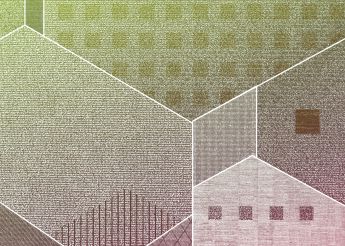HDV. The functioning of a small-scale facility can have a real impact on prison staff and how they work. One of the prison officers who came to work in Kortrijk detention house came from a large-scale prison. He asked for a transfer because it was closer to his home, but he was rather sceptical at first. He changed his mind completely when he started working at the detention house. He really started to believe in small-scale detention because he felt the difference.
In regard to the selection procedure, I believe that, in Kortrijk, half of the staff is made up of experienced prison officers coming from other prisons. But they also wanted to hire new people with other backgrounds, like social work or criminology, in order to create diversity in the prison culture.
ASV. They are now differentiating two types of officers in ordinary prisons: “detention counsellors” and “security officers”. The role of counsellors is more than just opening and closing doors. It’s about interacting with imprisoned persons, asking them how they feel, if they want to take part in activities and so on. It will take time before it is fully implemented because the staff need to be trained. It can also create new difficulties, because you need sufficient people in both groups to have enough people on the ground. It is not an easy task considering staff shortages.
HDV. Besides the prison staff, it is also important to raise awareness among judges. They have a very important role to play and they are not always aware of their impact on the situation.
ASV. The Judicial Training Institute (JTI) organised an immersion weekend for judges in Haren prison before it opened. We conducted a study on the judges’ experiences. The judges said it created awareness and gave them a sense of what it is to be imprisoned. After experiencing Haren, someone also said he would not mind sending people there as it is not as overcrowded as Antwerp. They also felt like they knew that in Haren, people’s rights would not be as violated as somewhere else. We are currently preparing a questionnaire for judges in Flanders, Wallonia and Brussels, to understand their perception on the execution of the sentences of less than three years.
HDV. I agree that it is important to raise awareness among judges. It doesn’t make sense to lock people up for so many years in large and overcrowded prison institutions. I think most people working in this area would agree with that. At the same time, however, it doesn’t make sense either that judges let their judgement depend on whether or not the sentence is implemented in an overcrowded prison or in a detention house. It is still about the deprivation of liberty, which is the sentence. Following this logic, it also makes sense to me to properly implement the prison sentences shorter than three years. If judges don’t want people to be sent to prison, and to be affected by its harmful effects, they should consider non-custodial measures.





